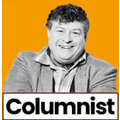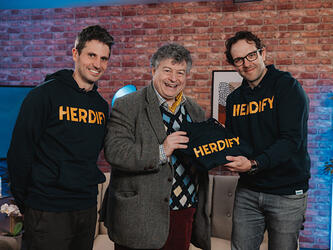Rory Sutherland: Less is more
There is a superb podcast episode you can find online in which the host, Greg McKeown, interviews behavioural scientist Leidy Klotz. In it, Klotz points to an extraordinary psychological bias that I think besets us all: when faced with a problem, we are wildly predisposed to seek solutions through addition rather than subtraction.
In a wonderful experiment that demonstrates this, people are given a bridge made of Lego that is uneven and asked what change needs to be made to level the bridge. Overwhelmingly, more people choose to add a brick to the low pillar of the bridge rather than removing one from the pillar that is too high.
This tendency to over-complication besets much of our decision-making in most areas of business – and it’s now something I try to correct in my own daily actions. It’s dangerously easy to assume that what a problem requires is a new corrective component rather than to ask an equally valid question – whether things might be streamlined and improved by removing something. This bias, after all, is partly how bureaucracies grow.
It’s worth considering to what extent market research may unconsciously be affected by this bias. Do we automatically ask: “What’s missing?” much more often than we ask: “What don’t you need?”
Remember, a great deal of marketing effort is rightly devoted towards attempts to uncover consumers’ ‘unmet needs’. I have no problem with this, obviously. But I’ve never come across any market research that looks to uncover the opposite: what you might call ‘met un-needs’. These are cases where enormous effort is dedicated to the pursuit of some metric that is either irrelevant to the consumer or becomes increasingly irrelevant once a certain basic threshold has been met.
In extreme cases of ‘met un-needs’, I suspect organisations may even dedicate a lot of effort to performing activities that the consumer may find mildly annoying. Over-solicitous service might be one example: the practice of many hotels in taking your luggage from you when you arrive. I don’t know about you, but I find this mildly disturbing. I’ve spent the past eight hours keeping my luggage in my line of sight, and then suddenly a stranger seeks to deprive me of it before I even know which room I have been assigned. OK, so far, my luggage has never actually gone missing in this way, but it creates anxiety, nevertheless. For the most part, I don’t travel with three Louis Vuitton steamer trunks and a vast entourage, so I’m perfectly happy manoeuvring my own case the last 100 yards of a 500-mile journey.
Technology is particularly beset by this functional bloat, with websites and software continually adding new functions to satisfy a small minority of demanding users only to end up with an interface that is painfully cluttered or completely unnavigable for first-time or novice users.
This addition of spurious functionality may also confuse potential customers. In my book Alchemy, I mentioned the extraordinary genius of former Sony chairman Akio Morita, the visionary behind the first Walkman. Morita refused requests to add recording functionality, even though such an addition would have cost very little. Why? Because he realised that a device that only did one thing – in this case, playing pre-recorded cassettes for the entertainment of travellers – would be very easy to choose or to reject if its function was self-evident. If the engineers had been given free rein to add recording functionality, people’s understanding of the device would have been muddied; perhaps they would have wondered whether it should be used as a dictaphone?
In this case, I’m fairly confident that less was more. How often do we fail to consider this? Researchers should perhaps remember the lesson of Leidy Klotz and devote time to asking what consumers might need less of. It’s a more subtle line of enquiry, since respondents will at first follow the standard assumption that ‘more is more’. Do we want a microwave also to be a grill? Ostensibly, yes. But are we blurring ‘affordance’ and perceived excellence by turning everything into a Swiss army knife?
Life, after all, is already complicated enough for all of us, and for people over a certain age, life is reaching a point where it is oppressively demanding of our cognition.
In another brilliant podcast, environmental expert Michael Liebreich debunks the idea of versatility as a virtue. “People always cite the fact that hydrogen is the Swiss army knife of energy,” he said. “Yes, it can power combustion engines, it can be used in fuel cells to generate electricity, and it can be used potentially to transport and store energy as well.” But, he points out something that is also true to life: “Lots of people own Swiss army knives, but they never actually use them very much, because for every single function it can perform, there’s usually a single-purpose, stand-alone device that does the same job much better.”
Rory Sutherland is vice-chair at Ogilvy
This article was first published in the July 2024 issue of Impact; the final issue of the magazine. Previous issues can be read here.

We hope you enjoyed this article.
Research Live is published by MRS.
The Market Research Society (MRS) exists to promote and protect the research sector, showcasing how research delivers impact for businesses and government.
Members of MRS enjoy many benefits including tailoured policy guidance, discounts on training and conferences, and access to member-only content.
For example, there's an archive of winning case studies from over a decade of MRS Awards.
Find out more about the benefits of joining MRS here.














0 Comments